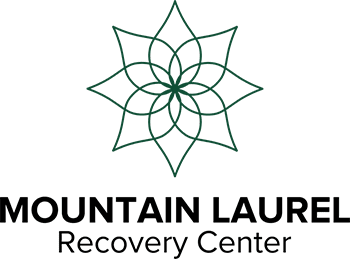
What Is Willpower?
Willpower can be defined in a number of different ways.
- The ability to control one’s own actions, emotions, or urges
- The control exerted to do something or restrain negative impulses
- A strong determination that allows one to do something difficult
- Self-control, self-discipline, or self-containment
- The ability to resist the temptation of an immediate pleasure to obtain a more valuable long-term reward
The Marshmallow Test
Willpower has been widely studied by psychologists. One of the most famous willpower studies is known as the marshmallow test. Stanford University psychologist Walter Mischel and his colleagues presented hundreds of preschoolers with a plate of marshmallows during the early 1970s. Each child was told the researcher in charge needed to leave the room for a few minutes. If the child waited until the researcher returned, they could have two marshmallows. If the child didn’t want to wait, they could ring a bell and the researcher would return—but they’d only be allowed to eat one marshmallow.
After the test was performed, the researchers continued to track the children as they grew. They found that the children who were willing to wait for the second marshmallow were generally faring better in life. They had lower body mass index (BMI) scores, higher SAT scores, and a greater ability to cope with stress and frustration.
Addiction Isn’t Caused by a Lack of Willpower
Addiction is a biologically based illness with complex environmental triggers. It’s not a character flaw, nor is it a disease caused by a lack of willpower. Substance abuse changes the brain in complex ways that impair mood, judgment, and problem-solving skills. Someone with a severe addiction will say or do things they’d never consider while sober.
Since addiction isn’t caused by a lack of willpower, a person can’t quit drinking or using drugs with willpower alone. They need access to a comprehensive care program that includes cognitive behavioral therapy, 12-Step support, treatment for co-occurring mental health conditions, and holistic services designed to promote healing of the mind, body, and spirit.
Willpower Can Play an Important Role in Recovery
Although a lack of willpower doesn’t cause someone to develop an addiction, this doesn’t mean that willpower is irrelevant in the recovery process. Once the foundation for sobriety has been established, willpower helps a person continue to work towards their recovery goals and resist cravings that can lead to relapse.
Fortunately, willpower isn’t an innate gift. Like other skills, it can be increased with a commitment to personal growth. Here are some tips to help you continue to increase your willpower:
- Know what motivates you. Think about why you want to get sober, whether it’s to improve your health, heal relationships with loved ones, or get back on track after your substance abuse has caused serious financial or legal problems. Post a reminder of your motivation, such as a special family portrait or a quote that speaks to the life you want to live, in a place where you’re sure to see it throughout the day.
- Break large goals into smaller steps. Building a new life for yourself takes time, so it’s important to be patient. You can keep yourself motivated by breaking your long-term goals into several short-term goals that are easier to accomplish. For example, if you want to improve your relationship with your child, scheduling a family game night each week is a good first step.
- Create an environment that sets you up for success. This means eliminating unnecessary temptations and roadblocks. If you know it’s going to be difficult to decline a drink at a party where everyone else is drinking, deciding to stay home might be the best choice. If certain friends and family members aren’t supportive of your recovery efforts, it might be time to limit your contact until your sobriety is firmly established.
- Treat yourself. Just as the children in the marshmallow study received an additional marshmallow as a reward for their patience, you deserve a chance to celebrate your success. Giving yourself something to look forward to, such as supplies for a favorite hobby or a special dinner with a friend, can help you keep making progress towards reaching your goals.
- Practice healthy lifestyle habits. When you’re hungry or tired, it’s hard to practice self-control and emotional regulation. You’ll feel impulsive and irritable. Good nutrition, regular exercise, and sufficient sleep are vital self-care practices for people in recovery.
- Don’t be afraid to ask for help. It’s normal to need ongoing support to accomplish your goals. If you’re struggling, reach out to your support network for assistance. Trying to do everything on your own is not healthy.
We Can Help
At Mountain Laurel Recovery Center, we’re committed to helping our clients develop the skills they need to build lives free from the burden of addiction. We offer a full continuum of care for those who attend our Pennsylvania residential addiction treatment center, including an extended care program designed to ease the transition back to independent living. If you’re ready to change your life for the better, we’re here to help.
